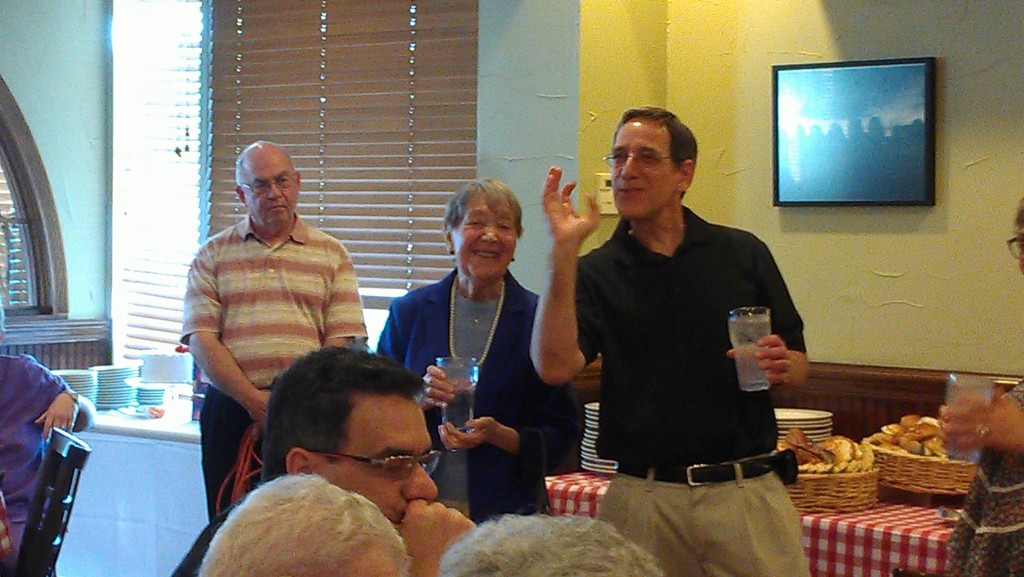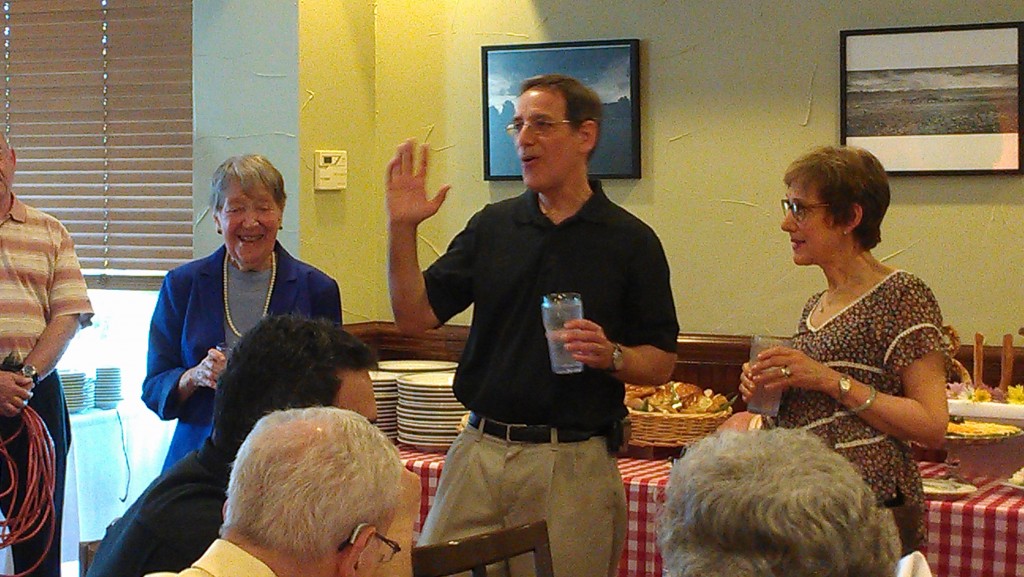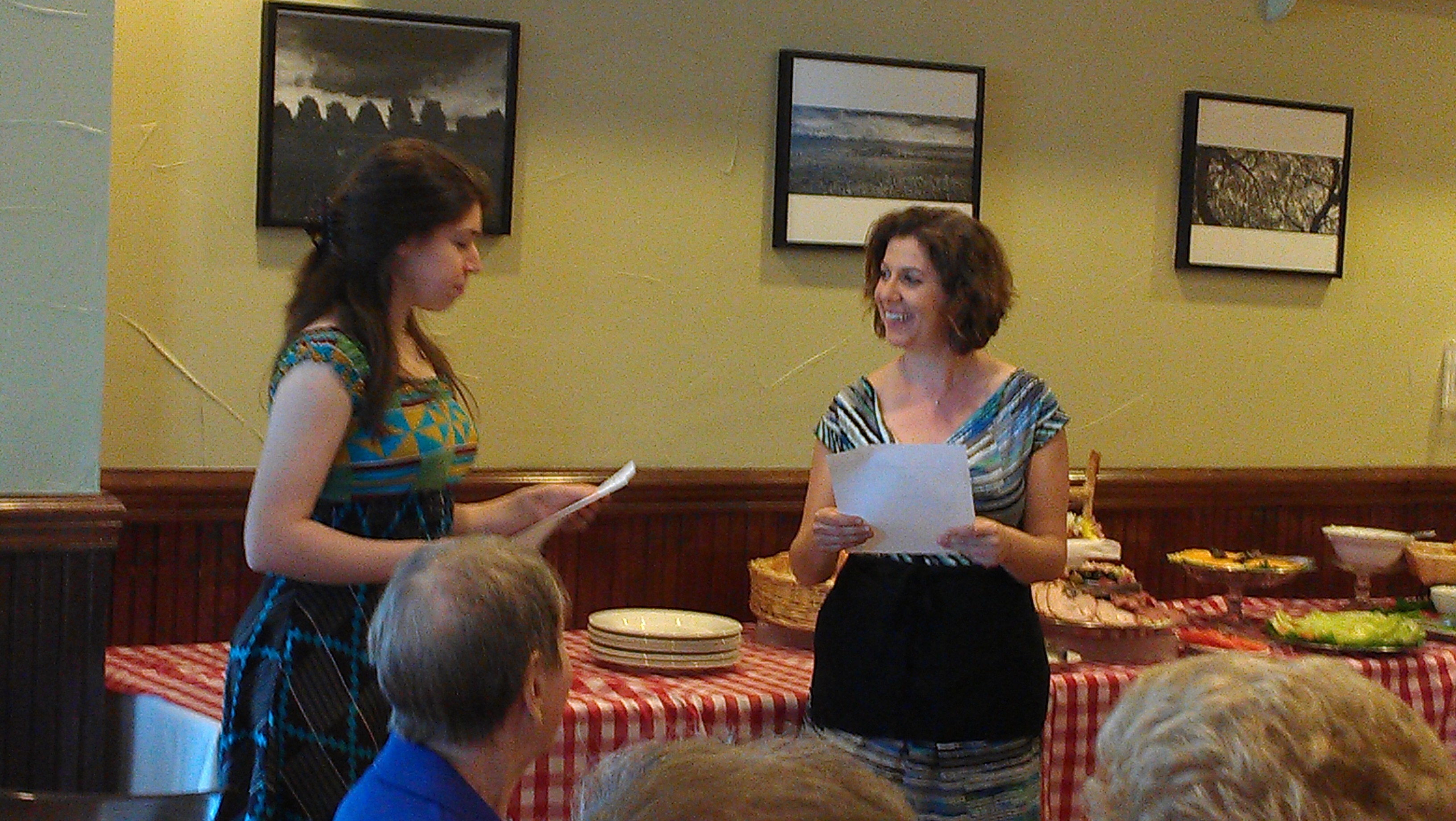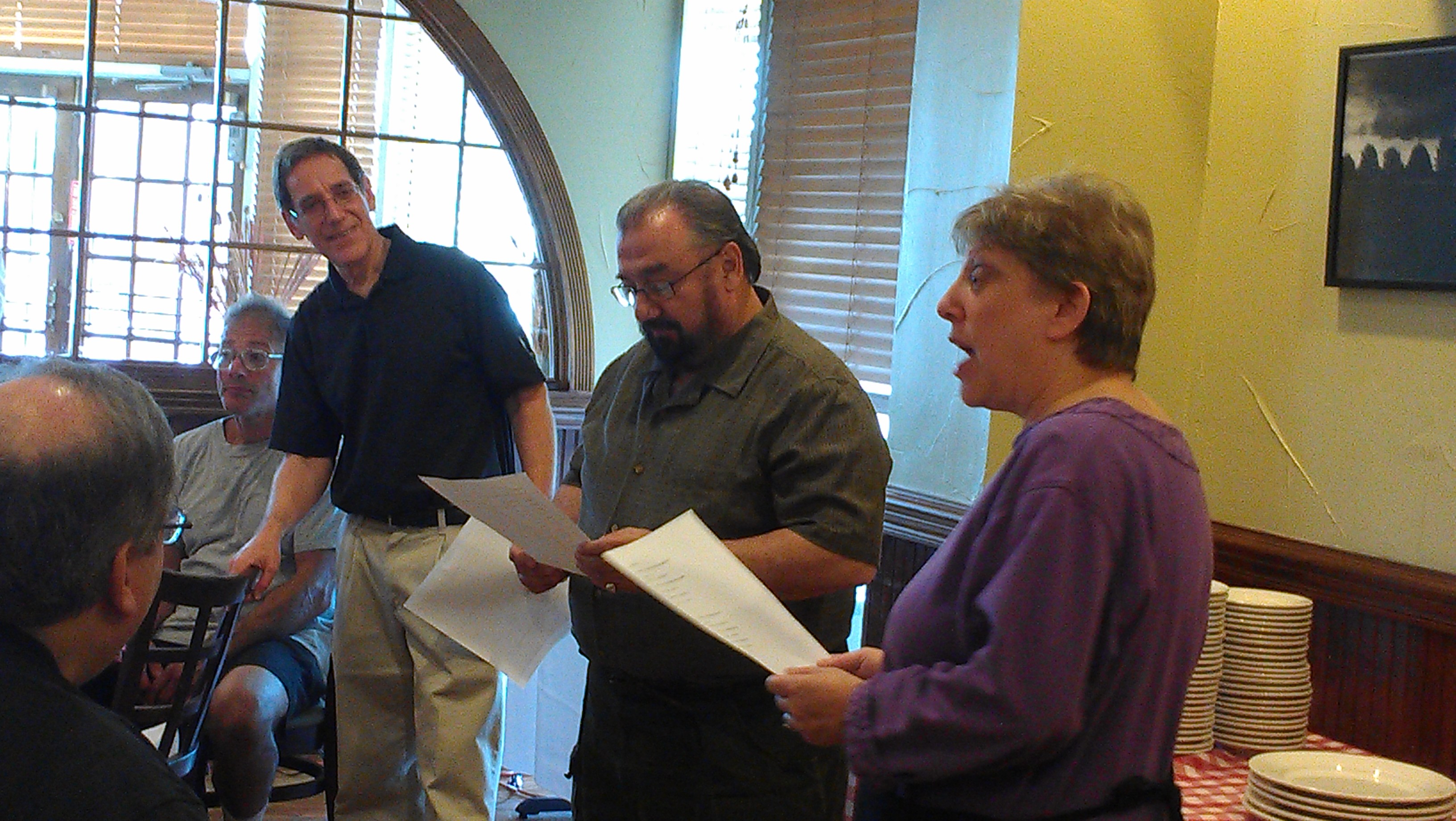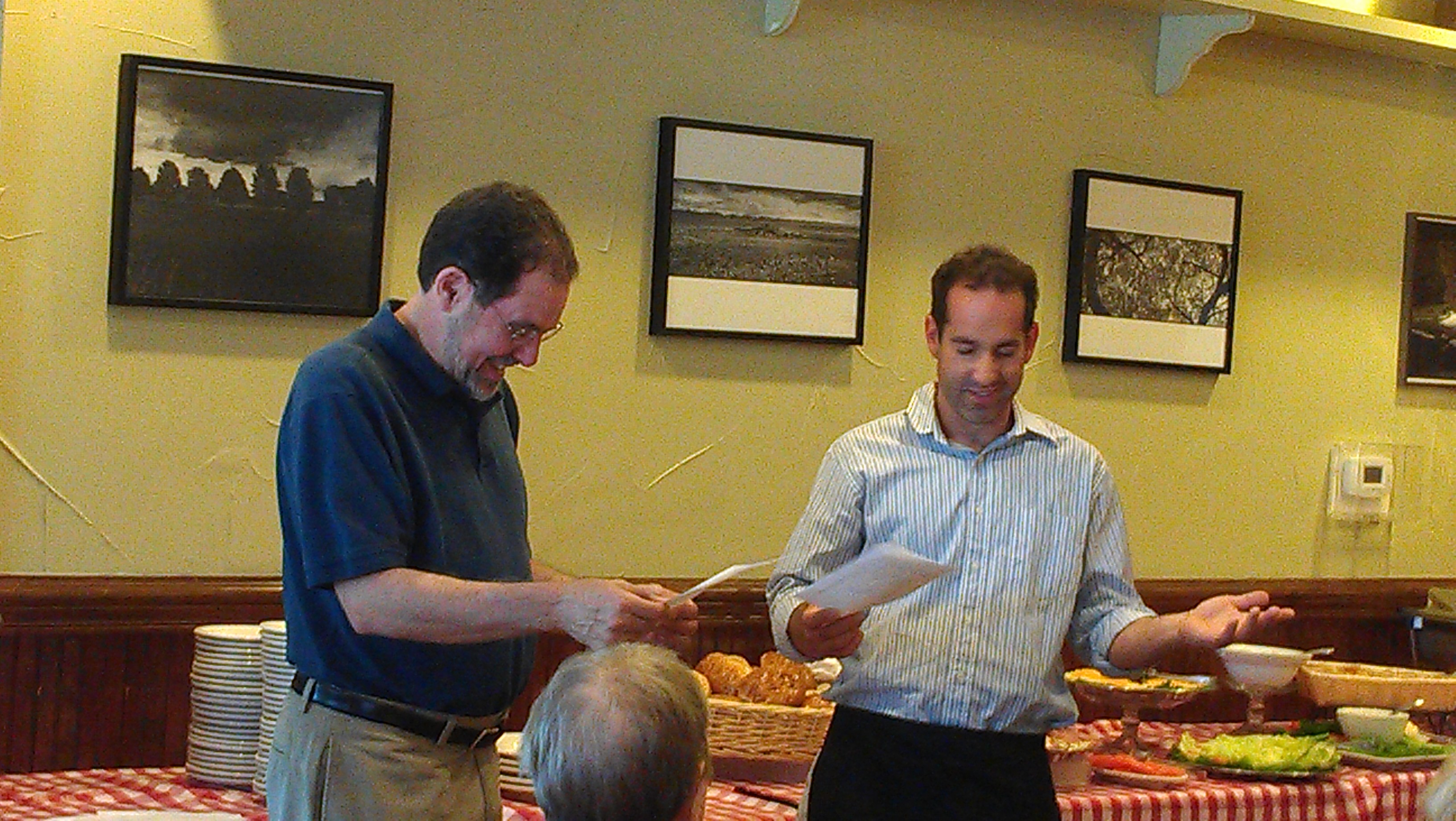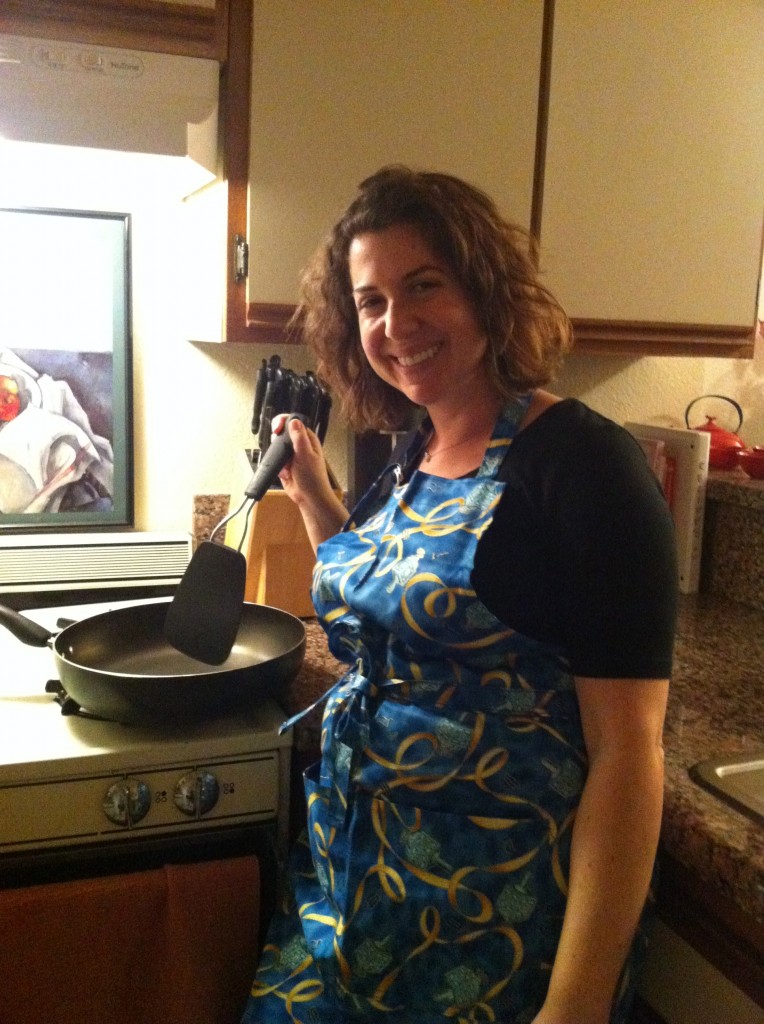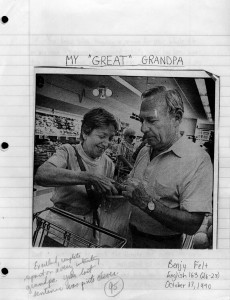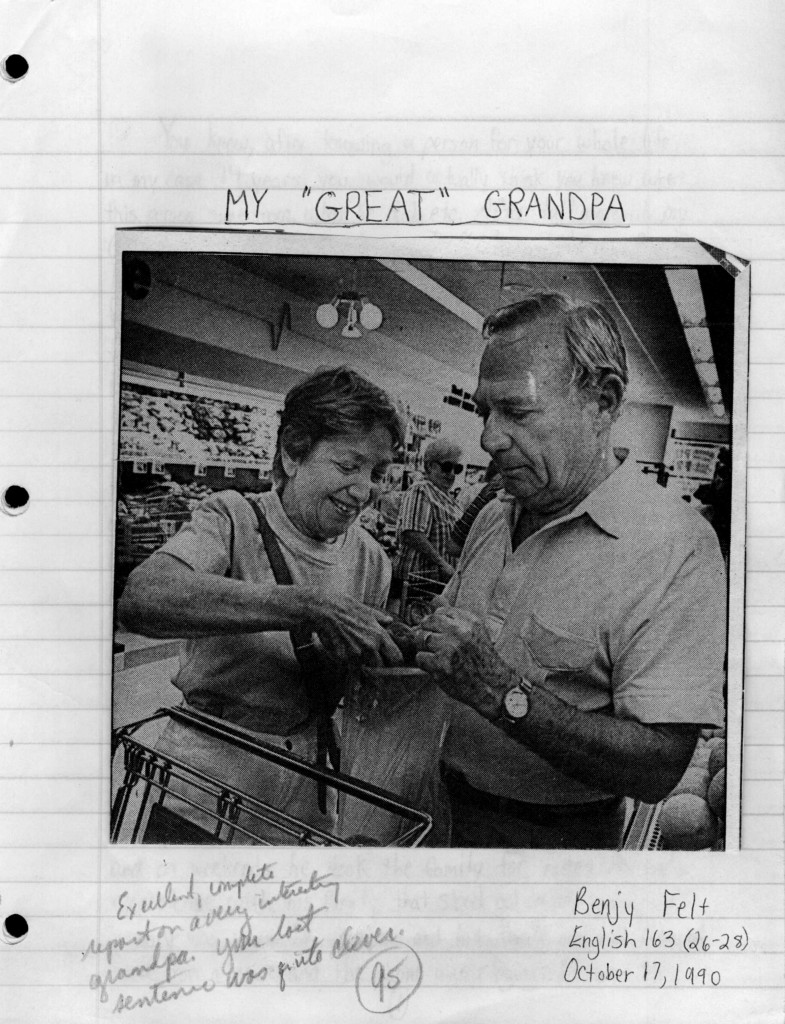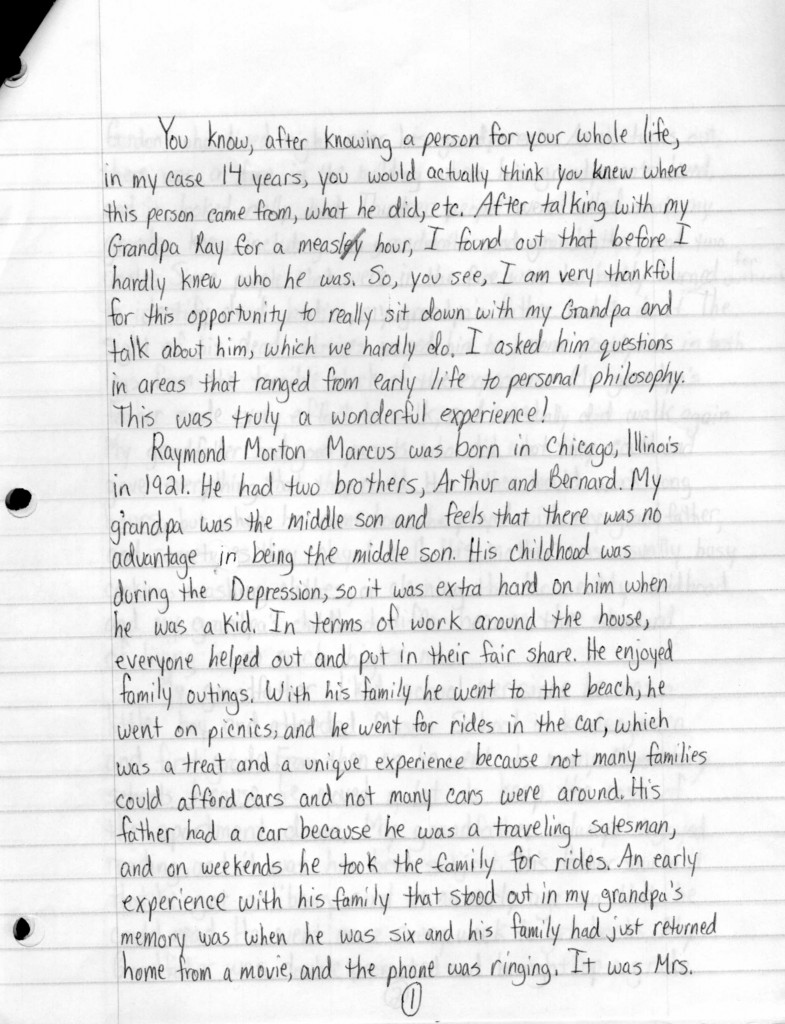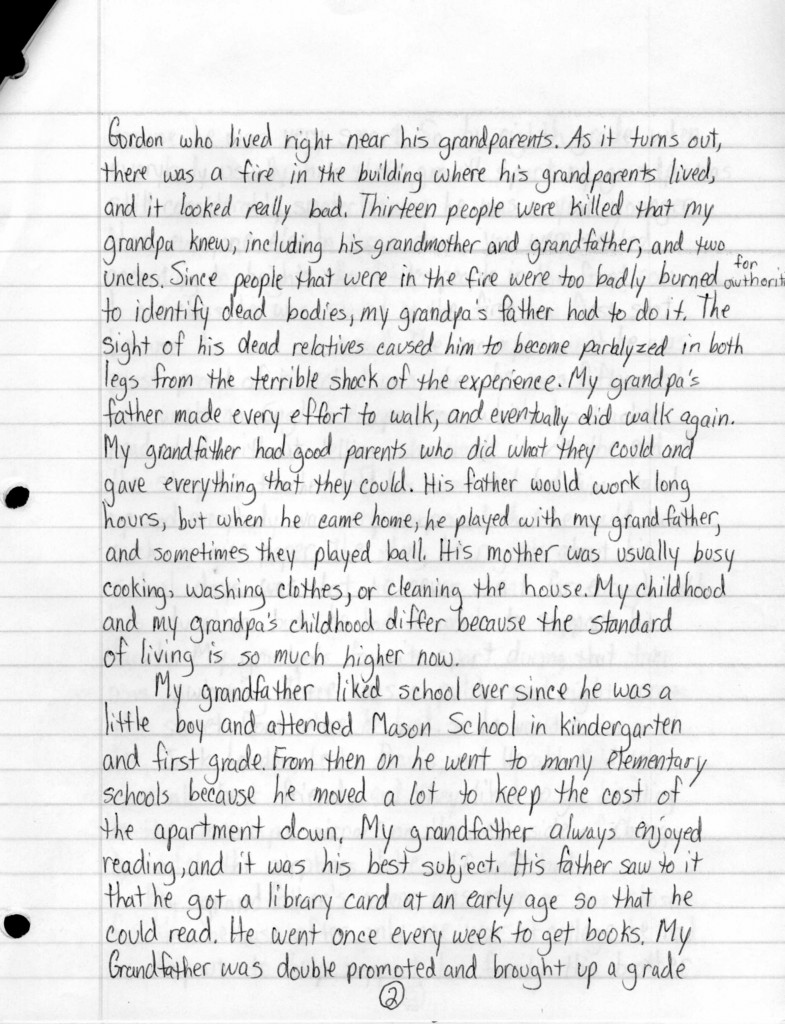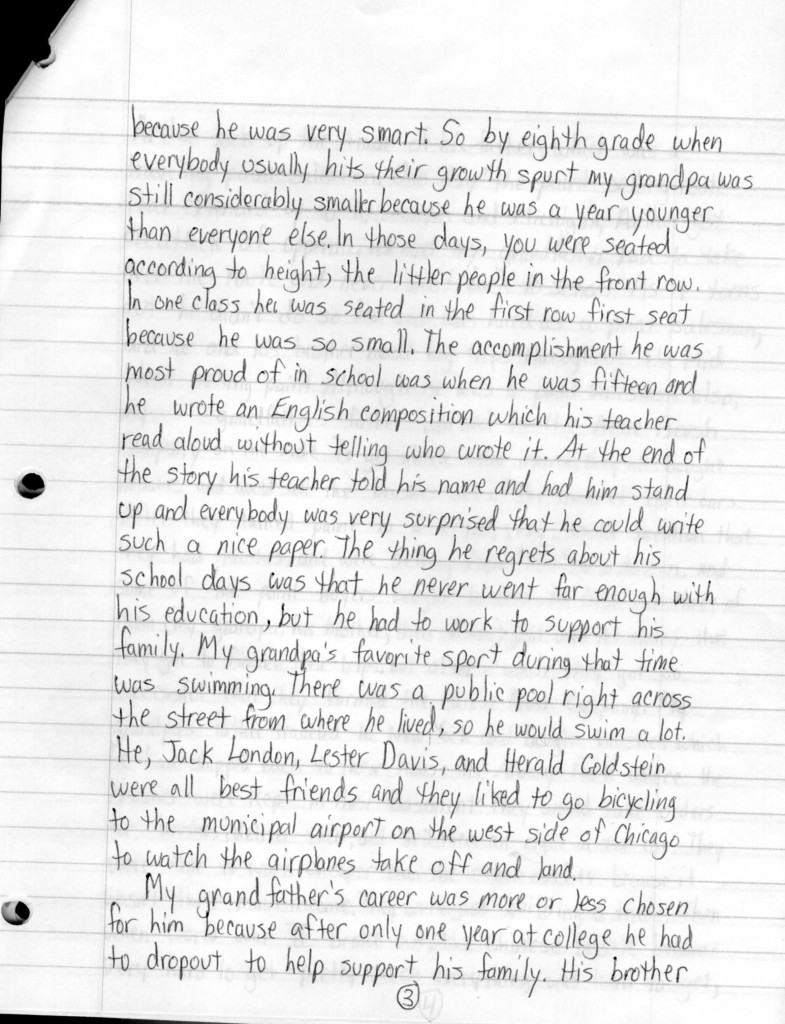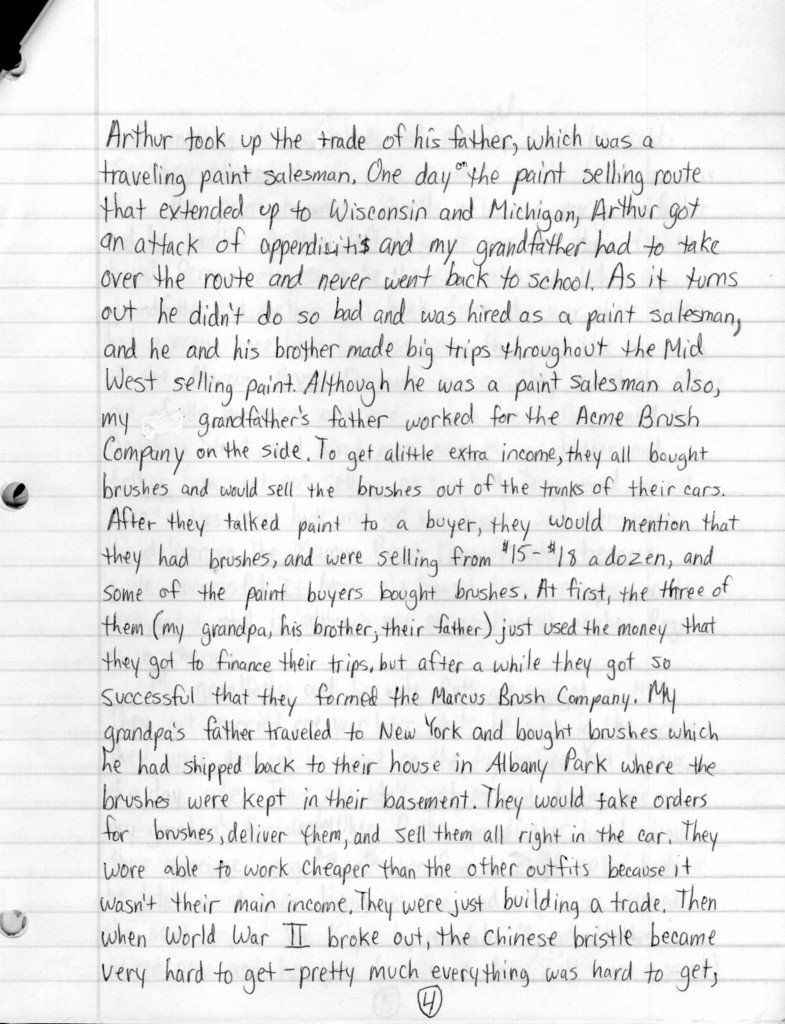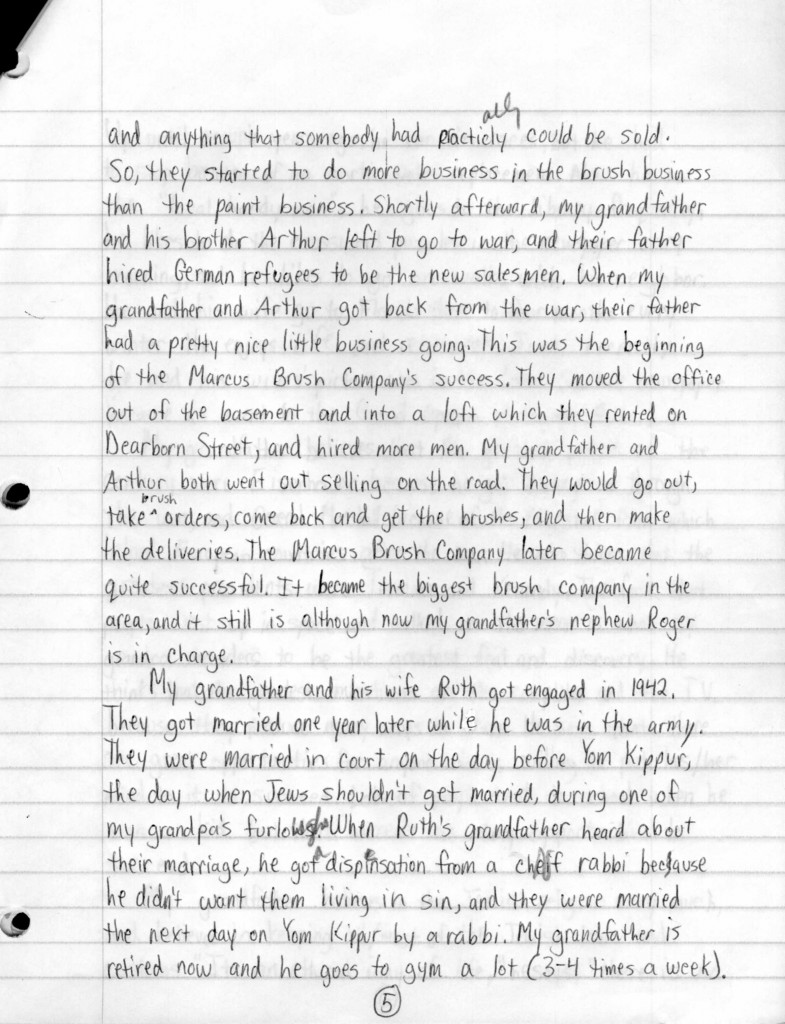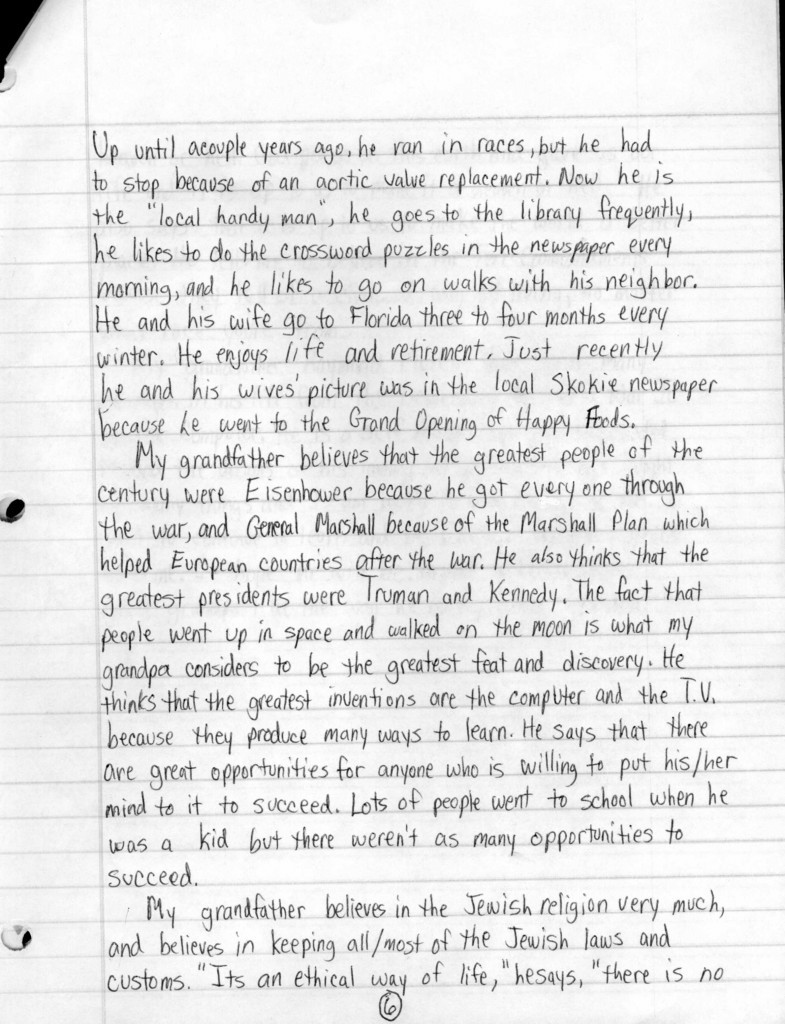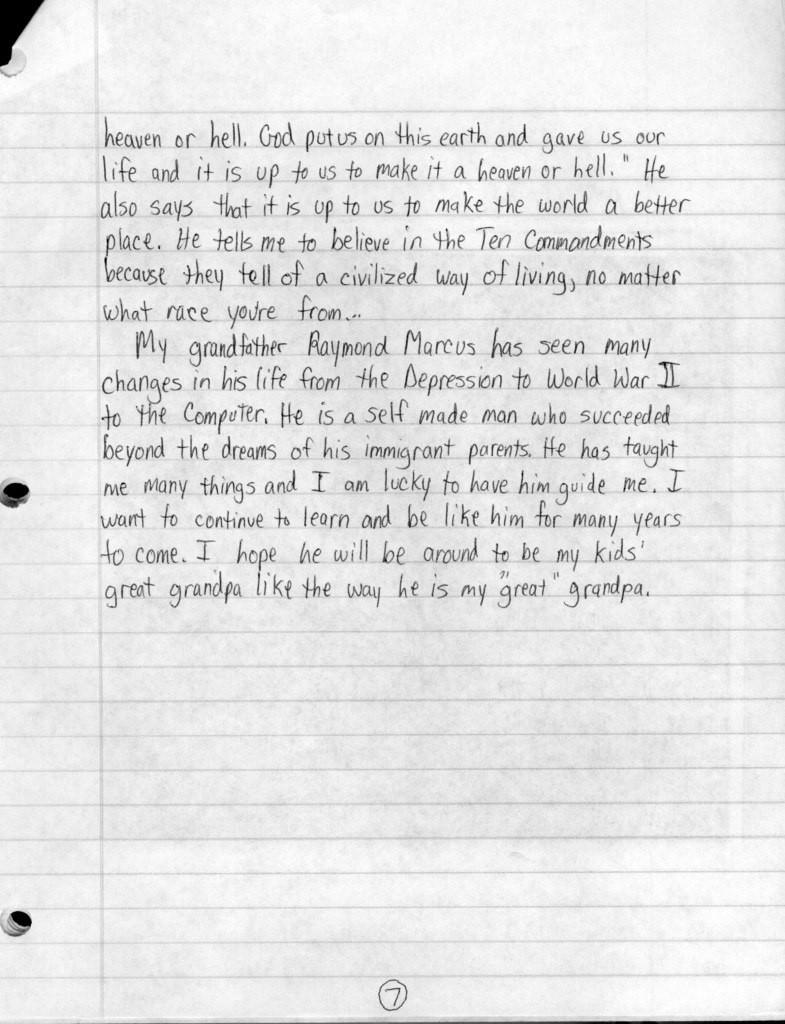On May 27, 2012, my family celebrated the 90th birthday of the one and only Ruth Feldman Marcus, aka Gramma. My mom and uncle — Ruth’s two children — set this simcha at Max and Benny’s Deli in Northbrook, IL.
The invitation to this party nodded to Ruth’s past, proclaiming, “you can take the girl out of the deli but you can’t take the deli out of the girl.” Ruth’s mother and brother, Sarah Rich Feldman and Maury Feldman, had co-owned and operated a Jewish deli on Chicago’s West Side during Ruth’s teen years. Ruth’s college dreams were denied when Sarah broke her wrist and needed Ruth to fill in for her, slicing cold cuts and carrying trays, among other things. Here at this family deli, Ruth’s future husband (and my grandfather) Ray Marcus took a shine to the cute blonde waitress and endearingly chose to eat far more meals there than strictly necessary.
My uncle Dick welcomed the group of approximately 50 family members and friends, explaining the significance of delis to our family.
Later, Uncle Dick revealed his wonderfully creative, hilarious, participatory party game. What if contemporary folks, ignorant of Jewish customs, wandered into an old school Jewish deli? And what if they all spoke Yiddish? (By the way, Uncle Dick’s premise isn’t as random as it may sound; see Michael Chabon’s The Yiddish Policemen’s Union.)
The following three videos feature Uncle Dick’s funny and articulate explanation of the concept. Because my brother recorded the speech on his cell phone, the image resolution is poor but the audio quality is good. He broke the footage up into three segments in order to make each file small enough to send. The beginning of each film includes the end of the last, just to provide context and ensure that no part of the talk was accidentally lopped off.
While the crowd laughed at the prospect of performing (and Uncle Dick’s improbable math), 11 brave, corned beef-sated family members later accepted Uncle Dick’s scripts and embodied the roles of meshuggeneh customers and exasperated servers, first in Yiddish and then in English.
CUSTOMER 1 – YIDDISH
Customer: Vilt du zine azay goot oz tsu helfin mir?
Waitress (Waiter): Yeh. Vous vilst due?
Customer: Ich vill habn ah sendvich fun pastrami.
Waitress: Mit rye broit?
Customer: No. Mit veisse broit.
Waitress: Veisse? Feh!
CUSTOMER 1 – ENGLISH
Customer: Will you be so good as to help me?
Waitress (Waiter): Yes. What do you want?
Customer: I will have a pastrami sandwich.
Waitress: With rye bread?
Customer: No. With white bread.
Waitress: White?! Feh!
CUSTOMER 2 – YIDDISH
Waitress: Ken ich helfin der?
Customer: Ich vill habn ah sendvich fun pecklfleisch mit rye broit.
Waitress: Rye broit. Zeier goot.
Customer: Und mit a shmeer mayonnaise.
Waitress: Feh!
CUSTOMER 2 – ENGLISH
Waitress: Can I help you?
Customer: I will have a corned beef sandwich on rye bread.
Waitress: Rye bread. Very good.
Customer: And a shmear of mayonnaise.
Waitress: Feh!
CUSTOMER 3 – YIDDISH
Waitress: Ken ich helfin der?
Customer: Yeh, danken. Ich vill habn ah hot dog, mit pomidor und pickle.
Waitress: Mmm! Geshmak.
Customer: Und mit ketchup.
Waitress: Feh!
CUSTOMER 3 – ENGLISH
Waitress: Can I help you?
Customer: Yes, thanks. I will have a hot dog with tomato and pickle.
Waitress: Mmm! Delicious.
Customer: And with ketchup.
Waitress: Feh!
CUSTOMER 4 – YIDDISH
Waitress: Arain! Zetz zach ah nitter. Ken ich helfin der?
Customer: Yeh. Nemn a salami sendvich.
Waitress: Hart oder zachtig?
Customer: Hart.
Waitress: Broit?
Customer: Tsibbleh bulke.
Waitress: Zeier goot.
Customer: Und a slice Swiss cheese.
Waitress: Vous?! Salami mit cheese?! Feh! Bist meshugah? Milchik un fleishik?! Nit gedacht! Feh!
CUSTOMER 4 – ENGLISH
Waitress: Come in! Sit down here. Can I help you?
Customer: Yes. I’ll take a salami sandwich.
Waitress: Hard or soft?
Customer: Hard.
Waitress: Bread?
Customer: Onion roll.
Waitress: Very good.
Customer: And a slice of Swiss cheese.
Waitress: What?! Salami with cheese?! Feh! Are you crazy? Dairy and meat?! God forbid! Feh!
CUSTOMER 5 – YIDDISH
Waitress1: Ken ich helfin der?
Customer: Ich vill haben a BLT.
Waitress1 (aside to Waitress2): Vos a BLT?
Waitress2: A sendvich.
Waitress1: Und vos iz in dos sendvich?
Waitress2: Pomidor, salat, und, ummm, bacon.
Waitress1: Vos iz dus bacon?
Waitress2: Bacon iz…. well bacon iz….
Waitress1: Bacon iz vos?
Waitress2: Well, uh, well bacon seh kumpt foon ah chahzer
Waitress1: FOON AH CHAHZER! Feh!
Waitress1 to Customer: Gai avek! Gai! Gai! Gai tsu Howard Johnson far chahzerfleisch! Meshiggoner!
CUSTOMER 5 – ENGLISH
Waitress1: Can I help you?
Customer: I will have a BLT.
Waitress1 (aside to Waitress2): What is a BLT?
Waitress2: A sandwich.
Waitress1: And what is in this sandwich?
Waitress2: Tomato, lettuce, and, ummm, bacon.
Waitress1: What is bacon?
Waitress2: Bacon is…. well bacon is….
Waitress1: Bacon is what?
Waitress2: Well, uh, well bacon comes from a pig.
Waitress1: FROM A PIG! Feh!
Waitress1 to Customer: Go away! Go! Go! You go to Howard Johnson for pig meat! Crazy person!
Needless to say, a great time was had by all!
.
.
.
My gramma and I have always been close. I had the good fortune of staying nearby for college, so during those years Gramma and I got even closer. I wrote my first column for The Daily Northwestern about a particularly memorable experience together.
Since graduating from college 10.5 years ago, I’ve only lived near Gramma (and the rest of my immediate family) for 2.5 of them. Boston was a lean time, family-wise, but luckily Gramma’s niece Helena Feldman Erlich and her daughter and her daughters live in the Los Angeles area. This means that, even though I’m far away from the heartland, I’m not without my family. We all gathered together last Saturday to celebrate the last night of Hanukkah, and Helena insisted that I share this video with Gramma. You were with us in spirit, Gramma!
Mike and I also threw a Hanukkah party, complete with high-stakes dreidel.
And I wrangled two rounds of latke-making, clad in a fabulously garish dreidel apron. As I jokingly explained to Gramma the next day, a 12-year-old girl does not truly come of age at her Bat Mitzvah — she joins the ranks of Jewish womanhood when she cooks up her first batch of latkes. :)
See you in March, Gramma! I love you!
- Transcripts from interviews with Ruth Feldman Marcus, Barbara Marcus Felt, and notes from a talk with Raymond Marcus
- Essay produced from these interviews and notes
- Eulogies of Raymond Marcus
- An essay about Raymond Marcus, written by my then 14-year-old brother
- WWII accounts of Raymond Marcus, Arthur Marcus, Bernard Marcus, and Charles Milner
- Stories about my paternal grandparents
- Saying goodbye




